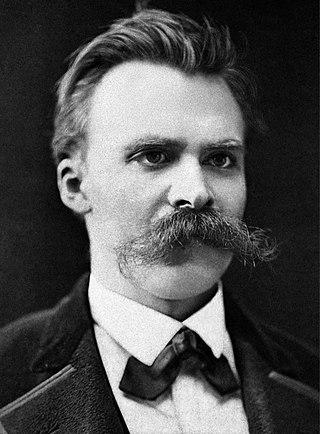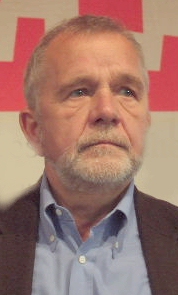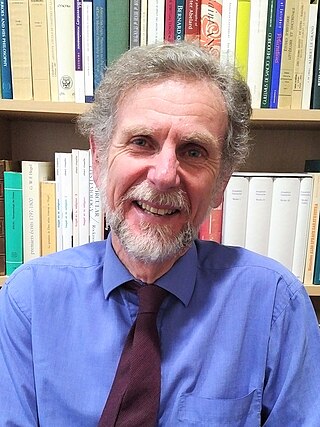
Friedrich Wilhelm Nietzsche was a German classical scholar, philosopher, and critic of culture, who became one of the most influential of all modern thinkers. He began his career as a classical philologist before turning to philosophy. He became the youngest person to hold the Chair of Classical Philology at the University of Basel in Switzerland in 1869, at the age of 24, but resigned in 1879 due to health problems that plagued him most of his life; he completed much of his core writing in the following decade. In 1889, at age 44, he suffered a collapse and afterward a complete loss of his mental faculties, with paralysis and probably vascular dementia. He lived his remaining years in the care of his mother until her death in 1897, and then with his sister Elisabeth Förster-Nietzsche. Nietzsche died in 1900, after experiencing pneumonia and multiple strokes.

Hans-Georg Gadamer was a German philosopher of the continental tradition, best known for his 1960 magnum opus on hermeneutics, Truth and Method.
In philosophy, nihilism is any viewpoint, or a family of views, that rejects generally accepted or fundamental aspects of human existence, namely knowledge, morality, or meaning. There have been different nihilist positions, including that human values are baseless, that life is meaningless, that knowledge is impossible, or that some other highly regarded concepts are in fact meaningless or pointless. The term was popularized by Ivan Turgenev and more specifically by his character Bazarov in the novel Fathers and Sons.

Martin Heidegger was a German philosopher who is best known for contributions to phenomenology, hermeneutics, and existentialism. His work covers a wide range of topics including ontology, technology, art, metaphysics, humanism, language and history of philosophy. He is often considered to be among the most important and influential philosophers of the 20th century, specially in the continental tradition.

Georg Philipp Friedrich Freiherr von Hardenberg, pen name Novalis, was a German aristocrat and polymath, who was a poet, novelist, philosopher and mystic. He is regarded as an influential figure of Jena Romanticism.
Continental philosophy is an umbrella term for philosophies prominent in continental Europe. Michael E. Rosen has ventured to identify common themes that typically characterize continental philosophy. These themes proposed by Rosen derive from a broadly Kantian thesis that knowledge, experience, and reality are bound and shaped by conditions best understood through philosophical reflection rather than exclusively empirical inquiry.
John David Caputo is an American philosopher who is the Thomas J. Watson Professor of Religion Emeritus at Syracuse University and the David R. Cook Professor of Philosophy Emeritus at Villanova University. Caputo is a major figure associated with postmodern Christianity and continental philosophy of religion, as well as the founder of the theological movement known as weak theology. Much of Caputo's work focuses on hermeneutics, phenomenology, deconstruction, and theology.

Being and Time is the 1927 magnum opus of German philosopher Martin Heidegger and a key document of existentialism. Being and Time is among the most influential texts of 20th century philosophy. It had a notable impact on subsequent philosophy, literary theory and many other fields. Though controversial, its stature in intellectual history has been compared with works by Kant and Hegel. The book attempts to revive ontology through an analysis of Dasein, or "being-in-the-world." It is also noted for an array of neologisms and complex language, as well as an extended treatment of "authenticity" as a means to grasp and confront the unique and finite possibilities of the individual.
Philippe Lacoue-Labarthe was a French philosopher. He was also a literary critic and translator. Lacoue-Labarthe published several influential works with his friend Jean-Luc Nancy.

Simon Critchley is an English philosopher and the Hans Jonas Professor of Philosophy at the New School for Social Research in New York, USA.

"The Origin of the Work of Art" is an essay by the German philosopher Martin Heidegger. Heidegger drafted the text between 1935 and 1937, reworking it for publication in 1950 and again in 1960. Heidegger based his essay on a series of lectures he had previously delivered in Zurich and Frankfurt during the 1930s, first on the essence of the work of art and then on the question of the meaning of a "thing", marking the philosopher's first lectures on the notion of art.
Robert Buford Pippin is an American philosopher. He is the Evelyn Stefansson Nef Distinguished Service Professor in the John U. Nef Committee on Social Thought, the Department of Philosophy, and the college at the University of Chicago.

Rüdiger Safranski is a German philosopher and author.

William James Desmond is an Irish philosopher who has written on ontology, metaphysics, ethics, and religion.
This is a list of articles in continental philosophy.
The following is a bibliography of John D. Caputo's works. Caputo is an American philosopher closely associated with postmodern Christianity.
The following is a list of the major events in the history of German idealism, along with related historical events.
Françoise Dastur is a French philosopher. She is Professor Emeritus at University of Nice Sophia Antipolis. She is a specialist of the works of Martin Heidegger.

Agata Bielik-Robson is a Polish philosopher. She is interested in Jewish thought, literary theory, and the philosophy of the subject.









